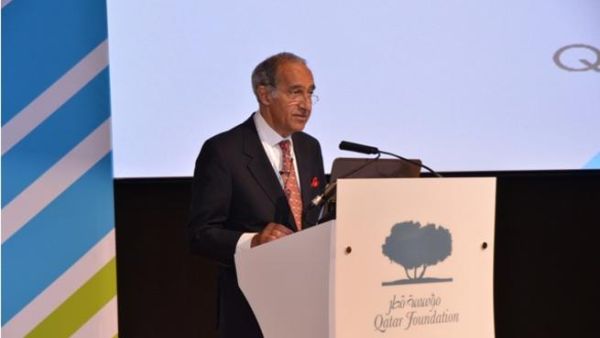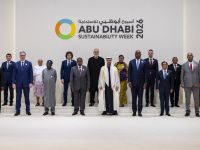Qatar Foundation joins UNCTAD to foster sustainable development

As part of its commitment to sustainable growth, Qatar Foundation for Education, Science and Community Development (QF) partnered with UNCTAD today to facilitate dialogue on key issues related to innovation and technology.
An integral part of the programme for the thirteenth session of the United Nations Conference on Trade and Development (UNCTAD XIII) this year is Innovation and Technology Day (ITD), a joint initiative by UNCTAD and Qatar Foundation.
The forum, which took place at Qatar National Convention Centre, provided policymakers and experts with an opportunity to discuss and debate critical factors related to the success of international and national development policies.
Guest speakers acknowledged the role of Science, Technology and Innovation (STI) as a powerful instrument towards the realisation of Millennium Development Goals, and sought to find solutions to close any gaps that still exist in the ability of developing countries to integrate such tools.
Dr Tidu Maini, Executive Chairman of Qatar Science & Technology Park (QSTP), and Science and Technology advisor, explained how QSTP was established as a unique model to accelerate research and innovation, create partnerships within the industry and address challenges that the country faces.
Qatar has already begun to export new, homegrown technologies such as RASAD and Loghati internationally. “In a short time with the help of science and technology and a focus on market gaps and innovation, ‘Made in Qatar’ technology is already leaving our shores for overseas markets. The challenges we face today are so numerous that we all need to work closely together, use science and technology wisely and innovate so that future generations can lead a better life,” said Dr Maini.
Dr Supachai Panitchpakdi, Secretary-General of UNCTAD, stressed the importance of innovation and technology in putting forth effective strategies. “Whether we think of climate change, food security or access to water, innovation and technology are at the core of our efforts to overcome such challenges,” he said. “Innovation and technology also play a pivotal role in achieving the Millennium Development Goals. It can facilitate better access to health or education services and contribute to finding locally-adaptive solutions to problems linked to access to energy, agriculture development or access to information.”
Dr Panitchpakdi acknowledged that challenges still existed, but cooperation between stakeholders could go a long way towards alleviating some of those shortcomings. “What we see is that wide gaps still persist in the ability of developing countries to harness science, technology and innovation for development. Some of the most critical disparities relate to the development of skills and capabilities to use existing technologies, access newer technology and adapt them to a local context.”
According to Dr Panitchpakdi, successful innovation depends on the presence of an open, interactive environment that should foster collaboration and exchange among a wide set of stakeholders including private companies, governmental agencies, research agencies, universities, users and consumers, as well as international partners.
Forum attendees asked questions and heard about the positive experiences of countries that have advanced sustainable growth through innovative schemes. It is expected that such good practices can be replicated by other developing countries and that stakeholders can benefit from this shared knowledge.
Her Excellency Ms Tarja Karina Halonen, former President of Finland, spoke about the power of innovation and encouraged countries to adapt national policies in a way that suits their needs.
“Our meeting today takes place at a time when the international community is actively searching for ways of better harnessing inclusive development,” said Ms Halonen. “It is not only the technical innovations, I would underline that also social innovations can support sustainable development.”
During the three panel sessions, high-level government officials, business leaders, academics and technology pioneers took part in interactive debate and made practical proposals that could later be developed into constructive policies.
In the first session, speakers delved into what inspired them as innovators, the challenges they faced and how their innovations have made a difference. The second session, titled ‘Innovation from within: The policy perspective,’ tackled implementation challenges and the implications for policy making. The third session addressed the transformative power of Information and Communication Technology (ICT).
UNCTAD XIII, which is being held under the theme “Development-centred globalisation: Towards inclusive and sustainable growth and development,” aims to shape policy debates on development so as to ensure that domestic policies and international action are mutually supportive in bringing about sustainable development. UNCTAD XIII concludes on Thursday (April 26).
Background Information
Qatar Foundation
Qatar Foundation (QF) is a non-profit organization made up of more than 50 entities working in education, research, and community development.
Our unique ecosystem—supported by partnerships with leading international institutions—is built on initiatives that address our most pressing challenges, create global opportunities, and empower people to shape our present and future.







